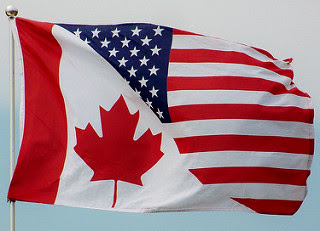All the NEWS that's fit to print
 |
| Suggest a Caption |
Any discussion of News,
whether it be the fake
kind or the main stream
or true kind
should probably begin with a look at the body of TV, radio, print and
internet reporting we now subsume under the heading, NEWS.
(At
the core is the word new,
of course. New is an
adjective in it’s general sense, and adjectives don’t normally
have plural forms so the “S” at the end already makes news
feel gimmicky. But let that be.
It’s just the grammar obsession in me talking.)
Casual
conversation gropes for topics sometimes. When cousins get together
for an afternoon, the topics of conversation are only marginally
predictable. Cousin Jake may safely be predicted to bring up the
foibles of current government because that’s his obsession. His
hatred of authority is a given. But what is predictable is that
whatever is new will
be the most welcome of topics. We are hungry for variety, and news
offers food.
The
conversations whenever cousins or friends sit down together over
coffee have one important characteristic, the significance of which
is generally overlooked. The NEWS
is made up of stories; reporters
even call it “going after a story.” There’s nothing wrong with
that, except that being limited by time and space, every story
necessarily has to be abbreviated, pruned for length.
What’s more,
the venue reporting the news
chooses what will be reported and what will be discarded given the
space that’s available. It’s called the Gatekeeper
function; whoever acts as boss of a news outlet decides what to let
in and what to ignore or discard. When we hear, see, or read a story,
therefor, we’re required to make a judgment: does this story have
enough background information, enough detail to do it justice? Is
this story important enough to justify crowding out any number of
stories that just didn’t make the cut?
The
fact of the gatekeeper’s selecting, pruning role alone should make
us suspicious of the venue of reportage we call THE NEWS.
As I write this, many a gatekeeper is letting in a brief clip on
Putin’s bragging about Russia’s possessing nuclear weapons that
are undetectable. Many a coffee row conversation will treat that
tidbit as an entire fact, oblivious to all the other statements Putin
made in his state of the union address, to arms-race history, to
existing nuclear arms treaties, etc., etc.
Meanwhile, a myriad of
books that do provide
background and detail on how weapons and political conflict make our
world unsafe sit unread on library shelves.
The
gatekeeper’s role and how it works out on the ground was made
evident recently . . . again. CBC, the national, publicly-funded
radio and TV service, carried reams of commentary and interviews on
the selection process for a new leader for the opposition party in
Ontario. At the same time, the selection of new leaders by opposition
parties in BC and Saskatchewan was ignored.
Gatekeepers are driven by
ratings and the environment from which they’re operating; they
can’t live in every province, city, territory at the same time.
Added to this, the personal bias of a reporter and/or an editor can’t
be ignored: Fox News’ gatekeeper eulogizes Trump, CNN’s
gatekeeper works to undermine his credibility. Neither actually
reports more than selected, gatekeeper-preferred facts,
and in comparison to what they promise, they are equally, “fake
news” for that reason alone.
Additionally,
scandalous always
seems to trump everything that isn’t; it
gets through the gate because we watchers, readers, listeners consume
it voraciously. Shame on us!
None
of this really matters in a society where the role and limitations of
the press are understood, but that’s not the case in our world
today. We seem to pick the news channel or publication whose
gatekeeper’s views most closely match our own. But if understanding
is what we want, and not just NEWS,
you’d think we’d read more books, take more courses, become
informed about media operations. We, too, are gatekeepers—of our
minds and mouths—and we need to begin to do information more
justice by being both skeptical of flash reporting and more
knowledgeable about backgrounds and details we’re never going to
get via JUST THE
NEWS.
See
you at the local library! I’ll be returning Ernie Regehr’s
Disarming Conflict.



Comments
Post a Comment